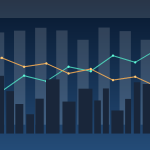The real estate market in the Greater Toronto Area (GTA) has been experiencing a notable slowdown, and one of the key contributing factors is the recent imposition of tariffs on Canadian goods by the U.S. administration. These tariffs, particularly the 25% levy on various Canadian exports, have had ripple effects across multiple industries, significantly impacting the housing market. From rising construction costs to decreased consumer confidence, the consequences are being felt by homeowners, potential buyers, and investors alike.
A Decline in Home Sales
One of the most immediate and visible impacts of these tariffs has been the decline in home sales. February 2025 saw a significant drop of 28.5% in GTA home sales compared to previous months. Buyers are increasingly cautious due to the economic uncertainty created by trade tensions between Canada and the U.S. Many are choosing to postpone their purchases, waiting to see how the market will respond in the coming months.
Additionally, the MLS Home Price Index recorded a 1.5% monthly decrease, bringing the average home price down to approximately $1,063,300. This represents a 1.8% drop from the previous year, signaling a cooling effect on the market. Homeowners looking to sell are now facing longer listing periods and reduced property values, making it a challenging environment for those hoping to capitalize on their real estate investments.
Rising Construction Costs and Housing Affordability
The tariffs have led to increased prices for critical building materials such as steel, aluminum, and lumber. These materials form the backbone of housing construction, and their rising costs are making new developments more expensive. As a result, developers are passing these added expenses onto buyers, further exacerbating affordability concerns in a market that is already known for its high home prices.
With higher construction costs, fewer new projects are being initiated, leading to a slowdown in housing supply. This could create an imbalance in the market, where demand remains strong but the availability of new homes continues to shrink. For first-time buyers, this means facing even greater financial barriers to homeownership.
Economic Slowdown and Employment Concerns
Beyond direct impacts on real estate, the tariffs have broader economic implications. A reduction in Canadian exports to the U.S. has already resulted in job losses, particularly in manufacturing and trade-related sectors. With fewer employment opportunities and increasing financial uncertainty, consumer spending power is diminishing.
In the GTA, where real estate has been a major driver of economic activity, a slowdown in home sales and construction could further weaken the local economy. Lower employment rates mean fewer people can afford to buy homes, leading to reduced demand and a stagnation of property values.
Inflation and Rising Interest Rates
Another major concern stemming from these tariffs is inflation. As the cost of goods and services rises, the Bank of Canada may respond by increasing interest rates to curb inflationary pressures. Higher interest rates translate to more expensive mortgages, making homeownership less attainable for many Canadians.
For those with variable-rate mortgages, even a small interest rate hike could mean significantly higher monthly payments. Potential buyers, especially those relying on financing, may delay their purchasing decisions in anticipation of further rate hikes, contributing to the ongoing slowdown in home sales.
Investor Uncertainty and Market Hesitation
The uncertainty surrounding trade policies and economic stability has led to cautious behavior among real estate investors. The GTA has long been an attractive market for both domestic and international investors, but with increasing unpredictability, many are adopting a wait-and-see approach.
Fewer investment transactions could further impact housing supply, especially in the condo market, where investors play a significant role. If confidence in the market continues to decline, this could lead to a further dip in property values, discouraging new developments and reducing overall real estate activity.
Public Response and Changing Consumer Behavior
The public response to the tariffs has been strong, with many Canadians expressing frustration over the strained trade relationship with the U.S. There is a growing sentiment of economic nationalism, with consumers choosing to support Canadian-made products and services over American alternatives.
This shift in consumer behavior may have long-term effects on trade and economic policies. If tensions persist, Canada may seek to strengthen trade relationships with other global partners, potentially reducing reliance on the U.S. market. However, until such shifts take place, the short-term impact on the GTA real estate sector remains significant.
Navigating the Market in Uncertain Times
For buyers, sellers, and investors navigating this changing real estate landscape, strategic planning is key. Buyers should assess their financial situation carefully and consider the potential for future interest rate hikes before making a purchase. Sellers should be prepared for longer listing times and possibly lower offers than expected. Investors should stay informed on market trends and trade policies to make well-timed decisions.
While the current real estate slowdown may be concerning, it also presents opportunities for those who are prepared. Buyers may find better deals in a cooling market, and sellers who are flexible on pricing may still be able to secure strong offers from motivated buyers. Investors looking for long-term gains may find this a good time to enter the market while prices are relatively lower.
Conclusion
The implementation of U.S. tariffs on Canadian goods has introduced new challenges to the GTA real estate market, affecting everything from home sales and construction costs to economic stability and investor confidence. As the situation continues to evolve, staying informed and making strategic decisions will be crucial for all market participants. The future of GTA real estate will largely depend on how trade policies unfold and how the Canadian economy adapts to these external pressures. Until then, buyers, sellers, and investors must remain vigilant and proactive in navigating this uncertain market.







